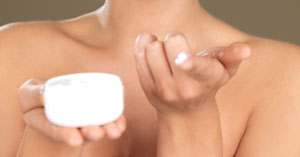In the United States, guidance surrounding a product's shelf life can be quite vague. That is because there is no government regulation requiring manufacturers to print expiration dates on the labels of cosmetic products (the category that includes skin care products). This factor has led to a generally blasé attitude among consumers, who tend to hold onto products (especially more expensive ones) until they have used every last drop in the bottle. Unfortunately, this practice puts them at risk for infection from the bacteria, mold and fungi that are most certainly contaminating the product.
To help you advocate for your clients' proper handling of skin care products, consider the following "10 Things" about product shelf life.
- It is essential to become familiar with the basic guidelines for product shelf life. Generally speaking, skin care products can be kept for about a year from the time they are first opened. However, this is in no way a hard rule. As you will learn in the tips that follow, factors like the manner in which a product is handled and stored, as well as the ingredients it contains, may significantly shorten a product's shelf life.
- If a skin care product contains water, it is highly susceptible to contamination. Water provides a haven for bacteria and mold. Therefore, any product that lists "water" on the ingredient list will have a reduced shelf life. Products that are water-based (water is listed as the first ingredient on the label) are at the highest threat for bacterial invasion. Therefore, it is highly recommended that water-based skin care products be kept for no more than six months.

- Keep your fingers out of the formulation. Products that are packaged in pump bottles present a reduced risk of contamination. This is because fingers never come into contact with the contents of the bottle. Products that are packaged in jars may be preserved longer by using a cosmetic swab or cosmetic spatula to dispense the formulation. Furthermore, it should go without saying that skin care products must be applied with clean hands.
- Shelf life is heavily determined by how the product is stored. The tendency for most individuals is to place their skin care products in a medicine cabinet over the sink. However, heat and humidity are constant factors in a typical bathroom environment – two factors that help to breed bacteria, mold and fungi. For this reason, skin care products should be stored in a closet outside of the bathroom, unless they contain active ingredients – in which case they may be refrigerated.
- Keep your product out of the light. Exposure to UV rays causes many skin care ingredients to quickly degrade. Therefore, products should be kept away from windows and never left in the car. If taking sunscreen with you to the beach, for example, consider storing it in your cooler so it will not be affected by heat or UV light.
- Preservatives are vital if a product is to have an extended shelf life. While the preservative-free skin care products have been on the rise in recent years, it is important to recognize the responsibility that comes with using such products. Preservative-free formulations must be handled in a manner similar to how one would handle preservative-free food; they are best refrigerated. Even then, preservative-free skin care products become contaminated quickly and can only be kept for a few weeks. Preservatives do an excellent job of giving a product an extended shelf life. However, their more important role is to protect us from the infection and disease that can come from exposure to the bacteria, mold and fungi that inevitably lands in our skin care products.
- Stick to small product sizes. You may save money by buying your favorite skin care product in larger sizes, but doing so means the product may become contaminated or unstable well before you use it all. The better, safer bet is to buy skin care products in a size you will use up within just a few months.
- Antioxidants add a bit of protection to skin care product formulations. While nothing can compare to the ability of preservatives to extend shelf life, antioxidants (like vitamin E) do have the ability to slightly enhance product stability and shelf life by slowing oxidation.
- Err on the side of caution with skin care products that contain active ingredients. Active ingredients in products like exfoliants, serums, acne treatments, and eye creams are highly sensitive. Upon being exposed to air, active ingredients begin to oxidize, causing them to lose their effectiveness after just a few months. In other cases, active ingredients may become more potent as they age, making them potentially harmful or irritating to the skin. Therefore, it is advised that skin care products containing active ingredients be kept for no more than six months from the time they are first opened. And until then, products containing active ingredients are often best stored in the refrigerator.
- Be mindful of a product's life cycle when considering its shelf life. Before a product is purchased by a consumer it is first manufactured, then bottled, and often warehoused before finding its way to the retailer's shelves. That journey can take weeks and, in some cases, months. If a product seems to have gone "bad" earlier than it should, take note of the lot number or batch code printed on the bottle and call the manufacturer. Most skin care companies make customer satisfaction a top priority and should be able to address your concerns.
Because consumers rarely think to go through their cabinets to toss out old products, I advise my patients to schedule it on the calendar at least twice each year, in spring and fall. These are times of year when consumers are modifying their skin care routines anyway, making it a logical time to evaluate their skin care and cosmetics inventory. Simply throw away products that are no longer good and replace them with those appropriate for the season.
 Ahmed Abdullah, M.D., F.A.C.S., F.I.C.S. is author of the forthcoming book, Simple Skincare, Beautiful Skin: A Back-to-Basics Approach; CEO and founder of Lexli International, Inc.; and formulator of the company's Lexli® line of professional skin care products. A board-certified plastic/reconstructive surgeon and a leading aloe researcher, Abdullah is a recognized expert on the restorative and medicinal effects of aloe vera.
Ahmed Abdullah, M.D., F.A.C.S., F.I.C.S. is author of the forthcoming book, Simple Skincare, Beautiful Skin: A Back-to-Basics Approach; CEO and founder of Lexli International, Inc.; and formulator of the company's Lexli® line of professional skin care products. A board-certified plastic/reconstructive surgeon and a leading aloe researcher, Abdullah is a recognized expert on the restorative and medicinal effects of aloe vera.
Want to read more?
Subscribe to one of our monthly plans to continue reading this article.